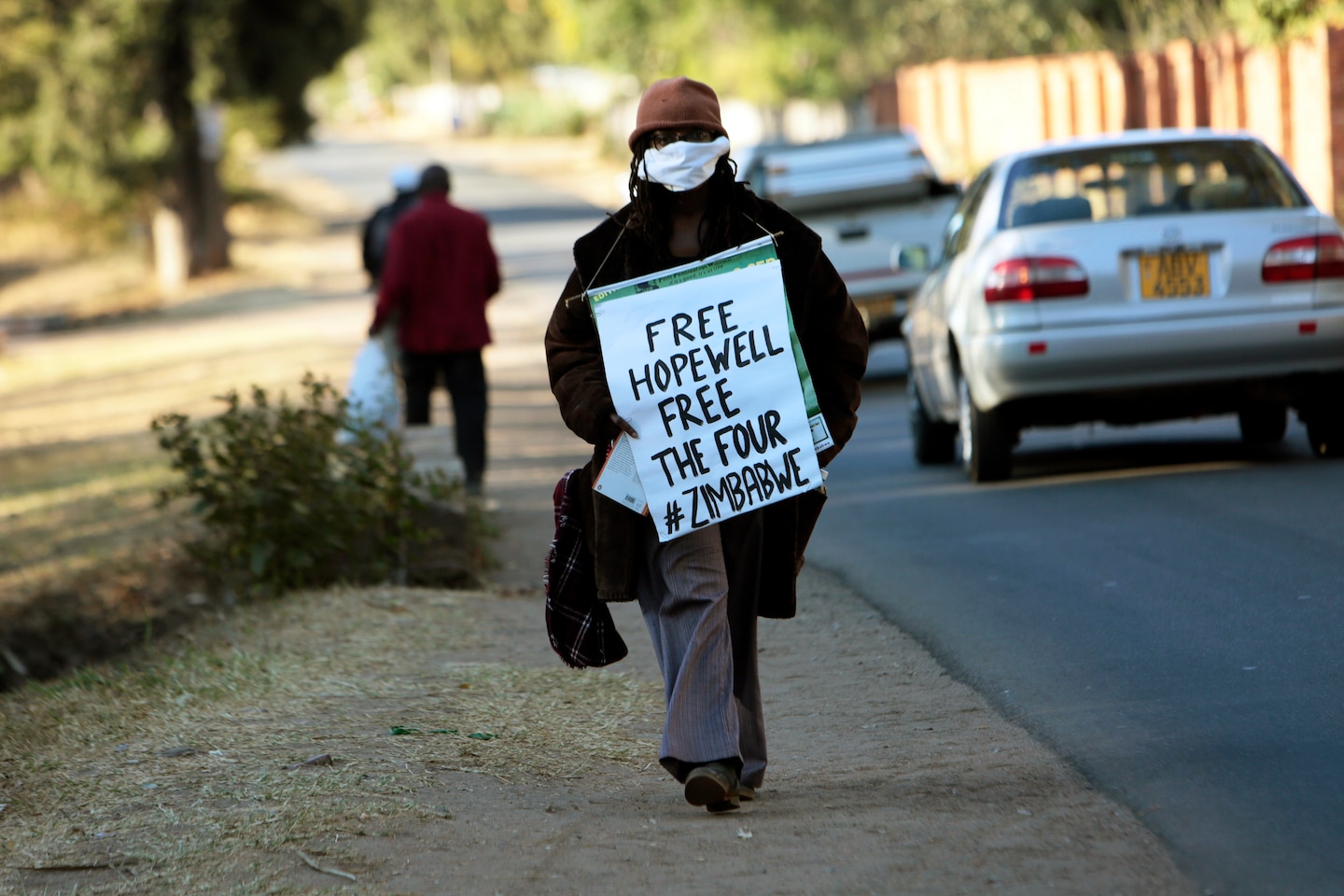Zimbabwe detains prominent journalist, activist who called for mass protests

Both were charged Monday with incitement to violence, according to a statement from police. A government spokesman, Nick Mangwana, said on Twitter that “no profession [is] above the law” regarding Chin’ono’s arrest.
Chin’ono’s reporting has repeatedly dogged the government for corruption, which Transparency International Zimbabwe says costs the country more than $2 billion every year. His investigation led to the firing of Health Minister Obadiah Moyo earlier this month for awarding contracts for pandemic-related protective gear at inflated costs.
Former tourism minister Prisca Mupfumira goes on trial next week for allegedly using millions of dollars from the state pension fund for personal purposes.
Zimbabwe is led by Emmerson Mnangagwa, a former minister and enforcer under Robert Mugabe, who ruled the country with an increasingly authoritarian style for nearly 40 years. Mnangagwa was declared the winner of elections two years ago that the opposition called fraudulent and has yet to accept.
“This is a regime that understands that it is incredibly vulnerable. It is not there by popular legitimacy,” said Doug Coltart, part of a team of human rights lawyers working on Chin’ono and Ngarivhume’s behalf. “Hopewell in particular has been at the fore front of exposing that, and Jacob is at the fore front of advocating protests against it. That’s what this is about. This is effectively an insecure regime trying to block the voices of those who want to help citizens understand the connections between corruption and their suffering.”
Western embassies and human rights groups issued calls for their swift release but Coltart said he thought it was more likely, given recent precedent after the arrest of other government critics, that bail would be denied and Chin’ono and Ngarivhume would be held past the planned protests on July 31.
“Instead of detaining those responsible for stealing public funds, President Emmerson Mnangagwa’s security forces would rather employ strong-arm tactics to silence the messenger,” said Angela Quintal, Africa director at the Committee to Protect Journalists.
Many of the ruling party’s top officials remain under various international sanctions, including from the United States.
Protests in Zimbabwe are often met with violence from state security forces. More than a dozen were killed in January 2019, during another period of acute economic pain. Police have warned that any protests now would violate a rule against large gatherings imposed due to the coronavirus.
Chin’ono, a former fellow at Harvard University’s Nieman Journalism Lab, has cultivated a massive social media following among disillusioned Zimbabweans. Coltart said that cameras and computers of Chin’ono’s were seized by police, who he said had yet to produce either a search or arrest warrant. Police also refused to sanitize Chin’ono or Ngarivhume’s holding cells or give them personal protective equipment until lawyers intervened, he added.






